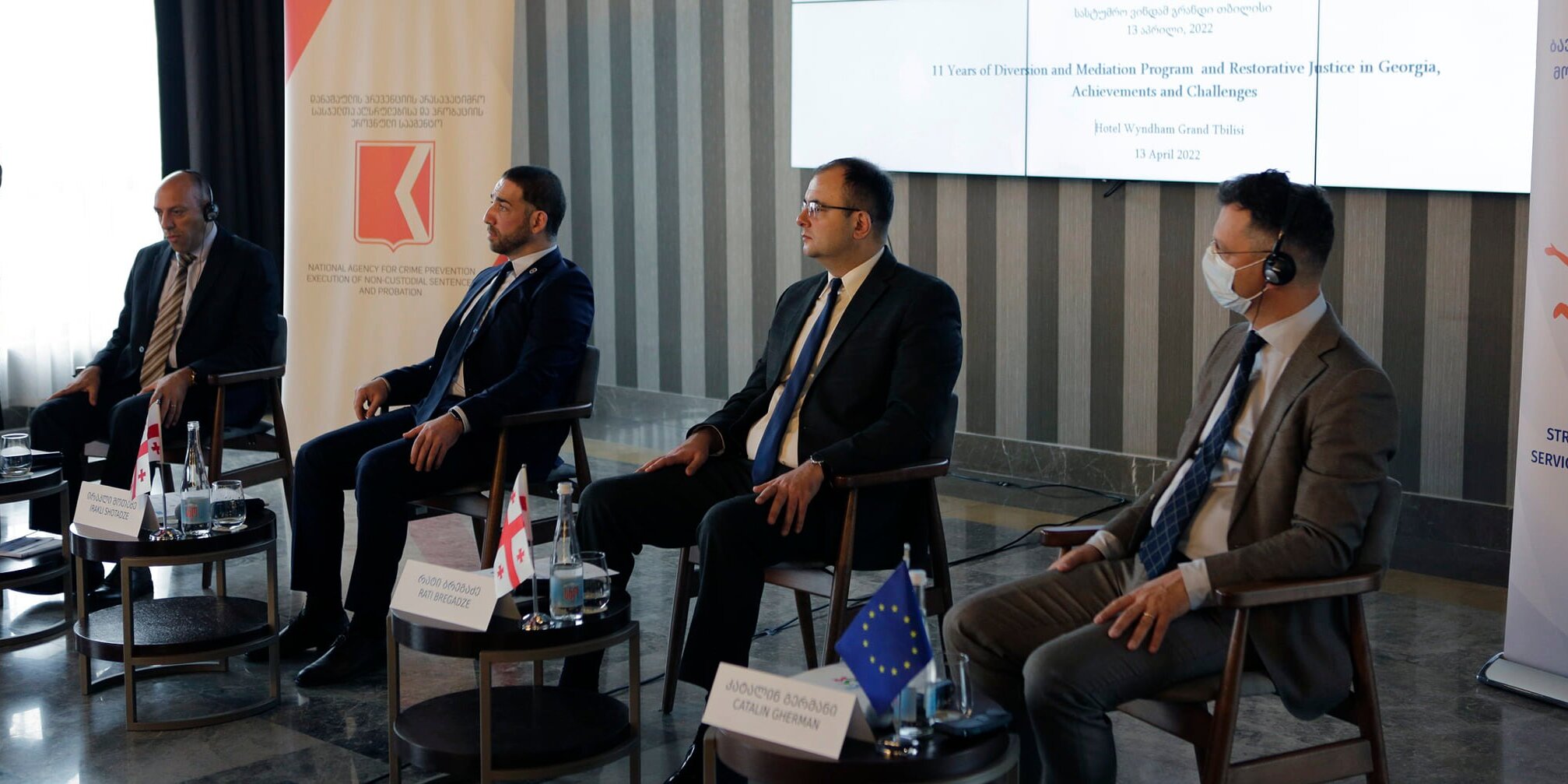News

Up to 5,600 Juveniles Avoided Prosecution through Diversion and Mediation Program
The results of the Eleven Years of Diversion and Mediation Program were summarized at a conference organized by the Ministry of Justice and the United Nations Children's Fund. The event participants discussed the achievements and challenges of the project.
Through the diversion and mediation program, up to 5,600 juveniles were prosecuted during this period. Diversion is an alternative form of punishment that allows a juvenile to take responsibility for his or her own actions and continue to live without a conviction if he or she commits a crime for the first time. The program is implemented by the Agency for Crime Prevention, Execution of Non-custodial Sentences and Probation of the Ministry of Justice in cooperation with the Prosecutor's Office of Georgia.
The diversion and mediation project has been operating in the Georgian judiciary for 11 years. It was originally intended for children under the age of 18 and involved less serious crimes. Since 2014, given the impressive results of the program, diversion has also spread to serious crime cases; Since 2015, when the Juvenile Justice Code came into force, enrollment in the diversion program has also become possible for young people aged 18 to 21.
The conference was addressed by Minister of Justice of Georgia, Rati Bregadze, Prosecutor General of Georgia, Irakli Shotadze, Deputy Head of the EU Delegation to Georgia, Catalin Gherman and UNICEF Representative in Georgia, Ghassan Khalil.
Special attention was paid to the work of the program in the conditions of the pandemic, when the parties involved in the project had to work remotely. Despite these difficulties, the highest successful mediation rate in the diversion programs in 2021 was 65% per annum.
At the end of the conference, awards were presented to professionals involved in the program - successful prosecutors, mediators and social workers.
The event was organized within the framework of the EU project - "Strengthening Systems and Services for Child Protection in Georgia" - and was attended by professionals involved in the implementation of the restorative justice program, representatives of civil society and international organizations.
 Geo
Geo Eng
Eng